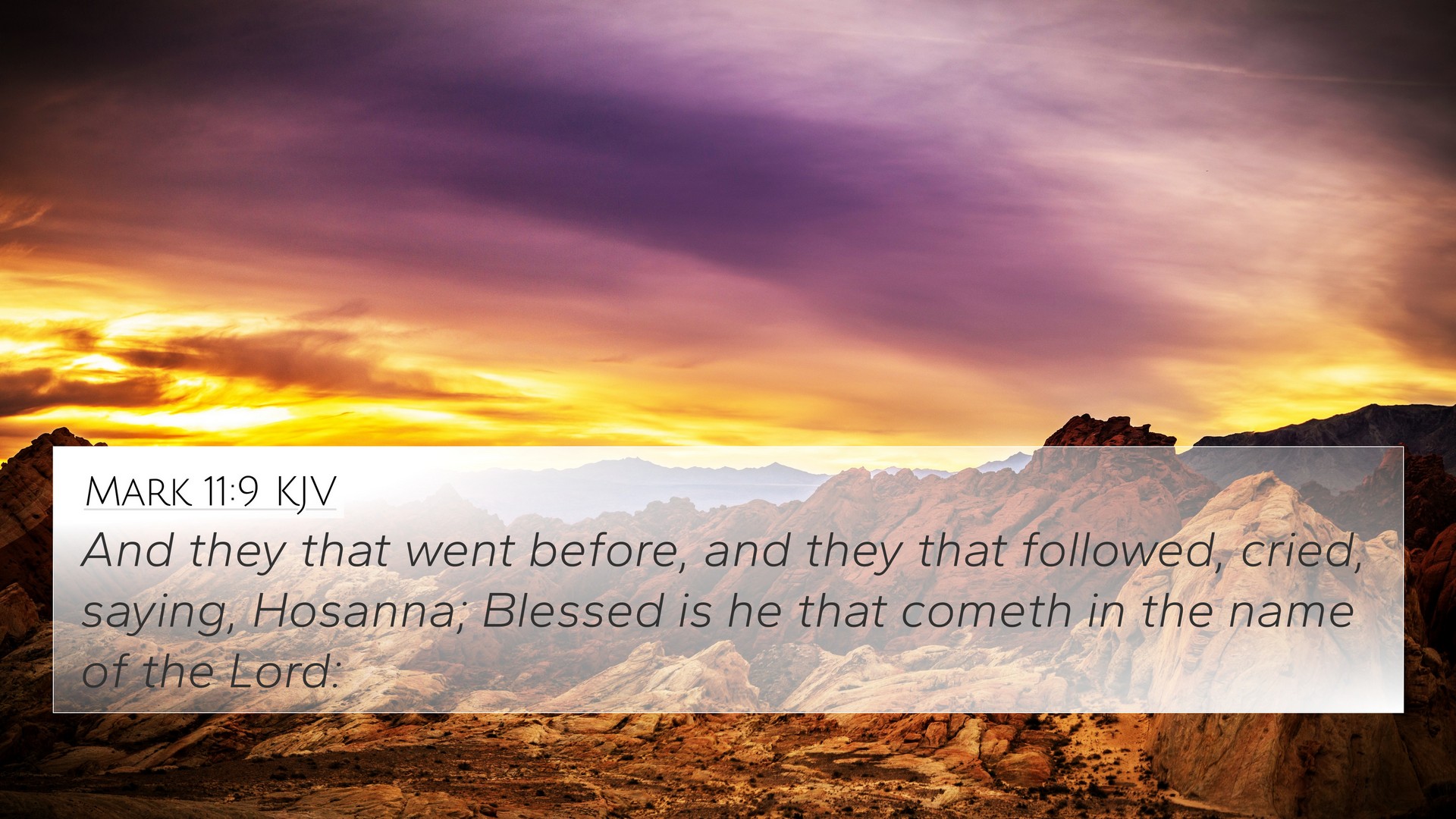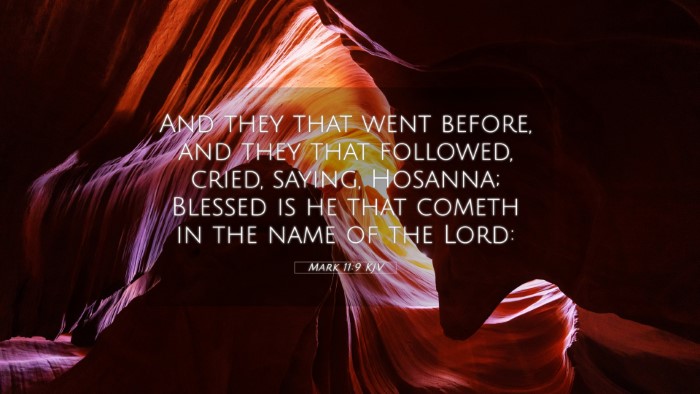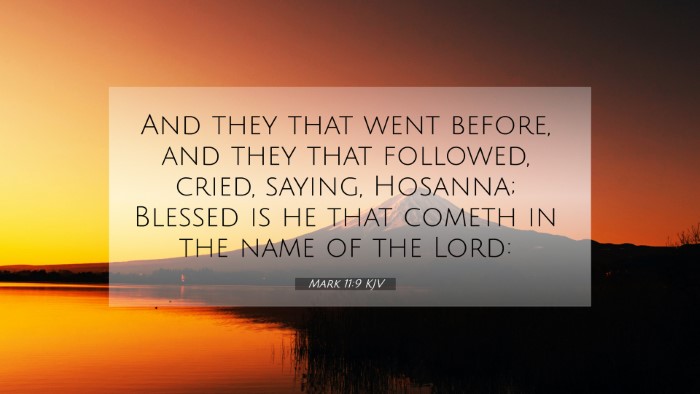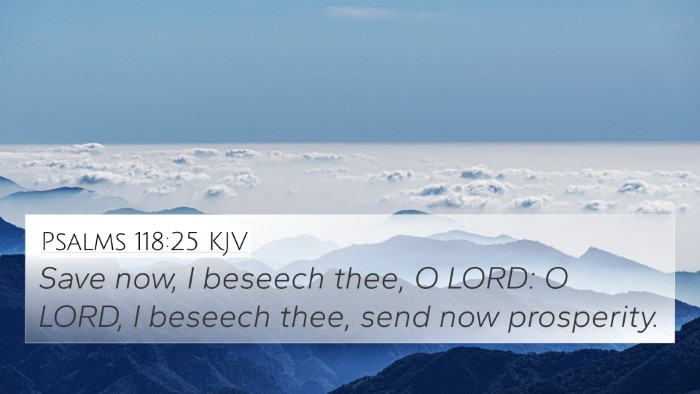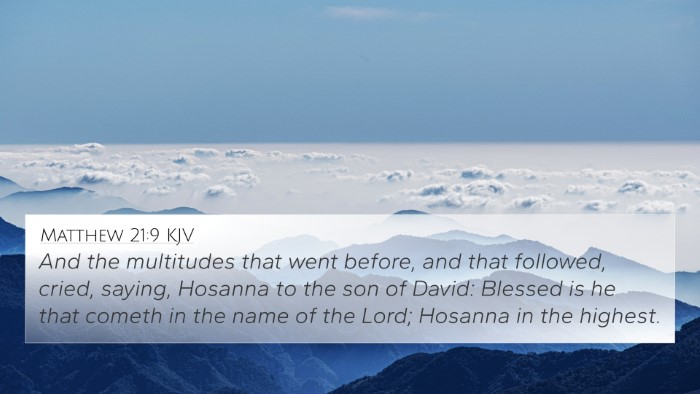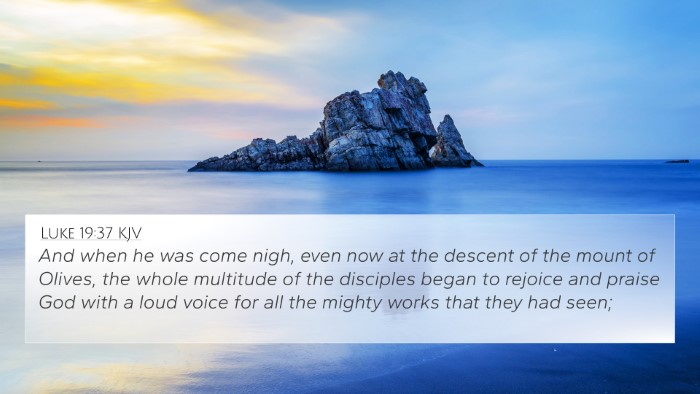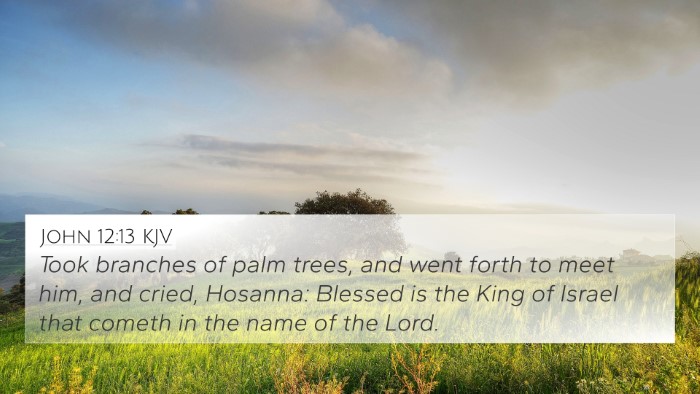Mark 11:9 - Overview
In this verse, we witness an important moment in the life of Jesus as he makes his triumphant entry into Jerusalem. The crowds shout, "Hosanna!" recognizing Jesus as the one who comes in the name of the Lord. This occasion serves as a pivotal fulfillment of prophecy and a declaration of Jesus’ messianic identity.
Commentary Insights
Matthew Henry:
Henry emphasizes the fervent enthusiasm of the crowd, who welcomed Jesus with joy and adoration. This exclamation of "Hosanna" resonates as a proclamation of salvation, highlighting the people's recognition of Jesus as their Savior. Henry notes that this event fulfilled the prophecy found in Psalm 118:25-26, where the cries of the people reflect their hopes for liberation and divine intervention.
Albert Barnes:
Barnes elaborates on the significance of the term "Hosanna," which means "save now." He discusses how the crowd's response reveals their expectation of a political Messiah, one who would save them from their earthly oppressors. Additionally, Barnes points out how the reference to “the name of the Lord” signifies divine endorsement and authority, further validating Jesus’ role in the unfolding narrative of salvation history.
Adam Clarke:
Clarke focuses on the historical and cultural context of this event, noting how the greeting "Hosanna" was a typical Jewish expression during Passover, symbolizing a plea for salvation. Clarke also points out that the crowd's recognition of Jesus reflects a deeper theological truth; they were unwittingly acknowledging His sovereign authority even as they misunderstood the nature of His kingship.
Key Themes and Cross-References
- Fulfillment of Prophecy: Isaiah 62:11; Zechariah 9:9
- The Messianic Hope: Matthew 21:9; John 12:13
- Jesus as Savior: Luke 19:38; Psalm 118:25-26
- The Nature of Christ’s Kingship: Revelation 19:16; John 18:36
- Recognition of Jesus: Matthew 16:16; John 1:29
Connections Between Bible Verses
The connections established in Mark 11:9 highlight the inter-biblical dialogue regarding the nature of messianic expectation. For instance, linking the enthusiastic acclamation of the crowd to prophetic declarations in the Old Testament reinforces the understanding of Jesus’ mission and identity.
Cross-referencing this event with other Gospel narratives (e.g., Luke 19:37-40) indicates that the acknowledgment of Jesus' authority and role as the divine servant was not only a New Testament phenomenon but rooted deeply in Jewish tradition and expectation.
Bible Cross-Reference Guide
For those looking to deepen their understanding, several tools for Bible cross-referencing include:
- Bible concordance: A resource for locating verses and themes.
- Bible cross-reference guide: Systematic connections for deeper study.
- Cross-reference Bible study methods: Creative approaches to study.
- Comprehensive Bible cross-reference materials: In-depth resources for comprehensive research.
Practical Applications
This verse encourages believers to reflect on how Jesus is acknowledged in their lives today. The crowd’s joy speaks to the hope and expectation we should have in our relationship with Christ. Understanding the references and connections between verses enriches our engagement with the Scriptures, empowering a more profound worship experience.
As you study Mark 11:9, consider how your understanding of Jesus’ identity is shaped by both the Old and New Testament scriptures. Engaging in comparative Bible verse analysis helps in identifying themes of salvation, kingship, and the nature of Christ’s ministry.
Thus, Mark 11:9 not only serves as a historical account of Jesus' entry into Jerusalem but also invites the believer into a deeper understanding of God's redemptive plan as revealed through interconnected scriptures.
Further Reflection
As you ponder this verse, ask yourself: How does the crowd’s declaration of "Hosanna" resonate with your understanding of Jesus as Savior? In what ways can you apply the themes of recognition and expectation to your own faith journey? Embracing the practice of cross-referencing can illuminate many of the answers found in Scripture.
